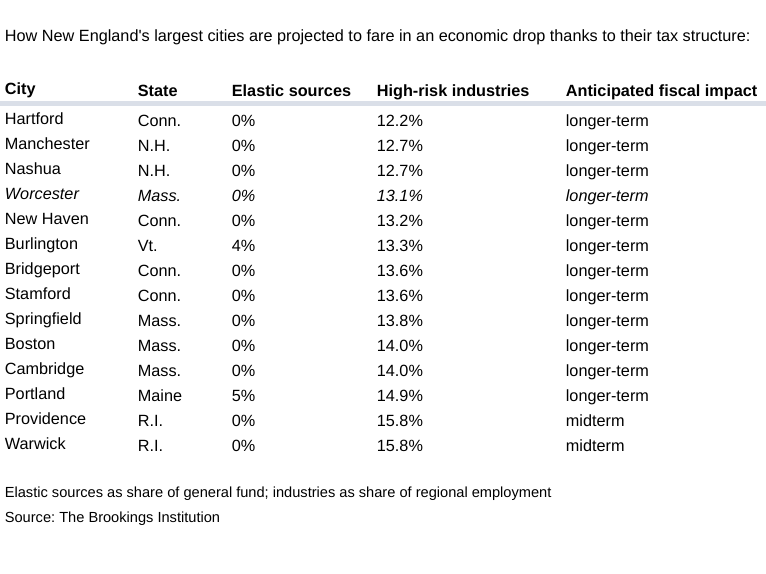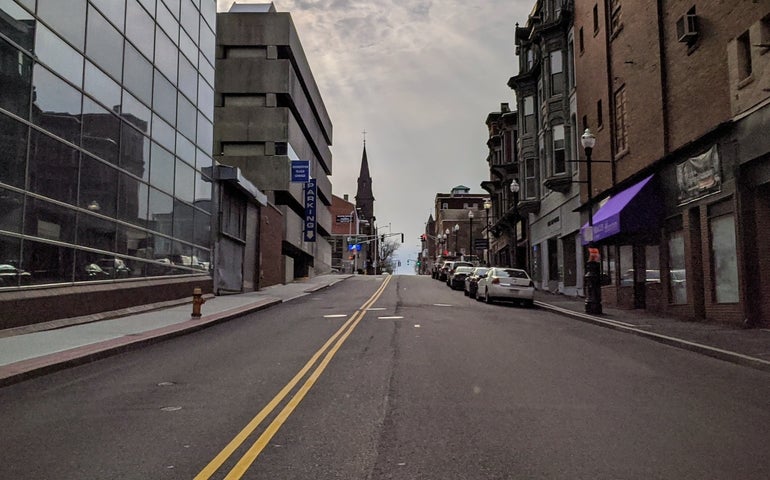The City of Worcester’s tax structure, which doesn’t rely on income or sales tax to support the municipal budget, should shield it from the worst fiscal effects from the coronavirus pandemic, according to a study by the Brookings Institution.
Brookings, a Washington, D.C., public policy group, analyzed 140 of the nation’s largest cities, looking at how each relies on what it calls elastic sources of revenue, or those that can go up or down the most depending on the strength of the economy. The group also considered what share of jobs are at most risk, particularly those in the service industry, which can’t be done remotely and have generally seen the highest new unemployment claims.
In both counts, Worcester fares well. The city is one of 30 that Brookings said should see a fiscal hit in the longer-term, not more immediately.
Worcester’s general fund doesn’t rely on income or sales tax, and much more heavily on property tax. That’s also the case for a lot of other larger New England cities, including Boston, Cambridge, Springfield, Hartford, and Manchester, N.H.

It’s much less so in many cities in the middle of the country, including the three major Ohio cities of Cincinnati, Cleveland and Columbus, which Brookings places at the top of its list of those most reliant on elastic sources of revenue. Those cities and others are said to have the most immediate fiscal impact from the virus, the group said.
“After less than a month of shelter-at-home edicts, it’s clear that retail sales have plummeted and unemployment is skyrocketing,” Brookings said. “A city that generates the majority of its revenue from sales or income taxes will be hit hard and immediately when it experiences such consumer declines and job losses.
“A city that relies on property taxes, however,” the group said, “will not experience such an immediate collapse in its revenues.”
A previous Brookings study found the Worcester area to be among the safest for its workforce composition, as well. Only 13% of the region’s jobs were considered by Brookings to be at risk of loss, including oil and gas, leisure and hospitality, travel arrangements, transportation, and employment services.

